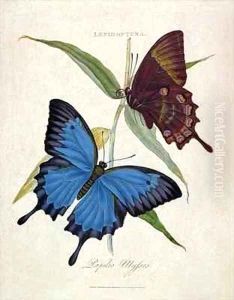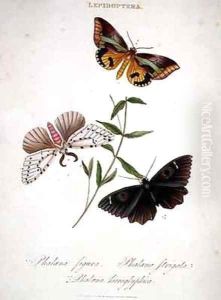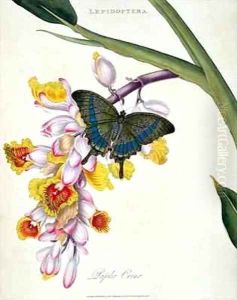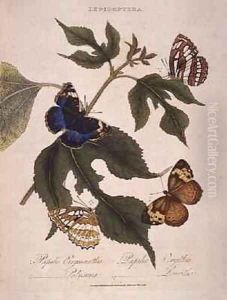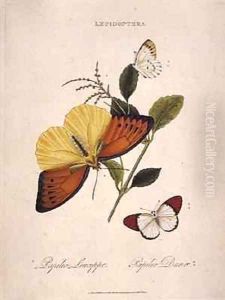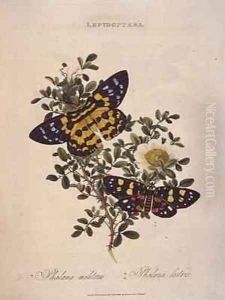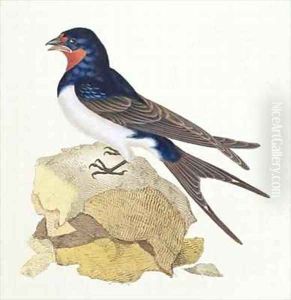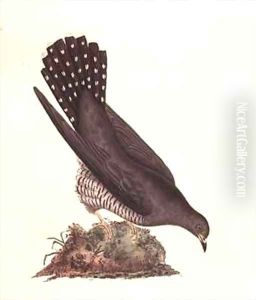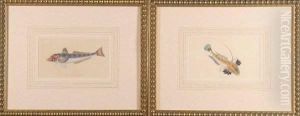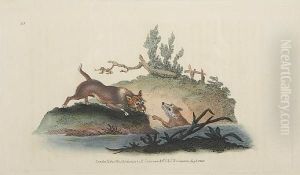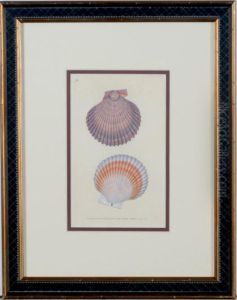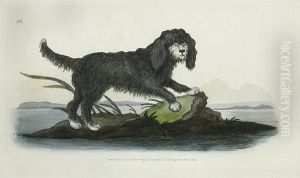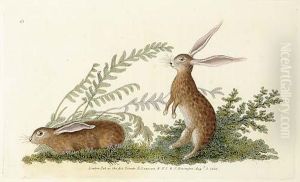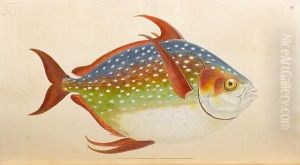Edward Donovan Paintings
Edward Donovan was an Anglo-Irish writer, natural history illustrator, and amateur zoologist born in 1768. He devoted his life to the study and documentation of natural history, significantly contributing to the field through his detailed illustrations and comprehensive writings. Donovan's passion for natural history was evident from a young age, and he pursued this interest throughout his life, despite the limited scientific resources available during his time.
Donovan's work was primarily focused on the documentation of insects, birds, and other wildlife, making substantial contributions to entomology and ornithology. He was known for his meticulous illustrations, which were not only scientifically accurate but also artistically vibrant, capturing the beauty and diversity of nature. His illustrations served as an essential resource for the scientific community, offering insights into species that were previously undocumented or poorly understood.
Throughout his career, Donovan published several significant works, including 'The Natural History of British Birds,' 'The Natural History of British Insects,' and 'The Natural History of British Fishes.' These publications were monumental at the time, providing extensive information on the natural history of Britain and contributing to the broader field of biodiversity. Donovan's dedication to his work led him to establish one of the first privately owned museums in London, where he displayed his vast collection of specimens and illustrations, making them accessible to the public and fellow scientists.
Despite his contributions to natural history and science, Donovan faced financial difficulties later in life, primarily due to the high costs associated with publishing his detailed illustrations and the limited commercial success of his publications. He died in 1837, leaving behind a legacy as a pioneer in the field of natural history illustration. Edward Donovan's work continues to be celebrated for its accuracy, beauty, and contribution to our understanding of the natural world.
